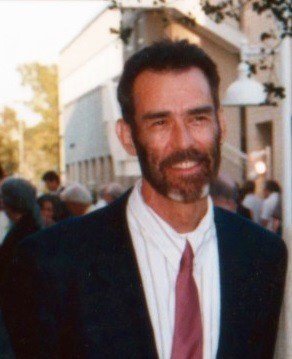
Lewis Acrelius Froman
Professor Emeritus of Political Science
Lewis A. (Creel) Froman (born 1935 in Buffalo, NY), a founding faculty member of the School of Social Sciences, passed away on March 13, 2014. Trained as a political scientist, Froman received his B.A. from Yale University in 1957, and his Ph.D. only three years later from Northwestern, where he had been a University Fellow.
The middle of three children—with an older brother (James) and a younger sister (Francelia)—born to Lewis A. Froman and Nadine Froman, Creel grew up around the academy. His father—Lewis A. Froman—was a Cornell-trained economist with a specialization in finance. The senior Froman started his academic and administrative career at the University of Buffalo in 1931, left for an instructor position at Cornell in 1948 and in the same year was appointed the fourth President of Sage College in Albany, NY (Sage College would eventually become Russell Sage College). Thus, Creel’s youth, a good deal of it devoted to success on the gridiron according to fellow Yale alumni, was spent around the environs of universities. [For those who may wonder, “Creel” was a longstanding nickname from his middle name of Acrelius – a middle name he shared with his father.]
Following the rapid completion of a PhD from Northwestern in 1960, Froman began his teaching career at the University of Wisconsin, Madison. As a Congressional Fellow (a highly coveted, competitive award given by the American Political Science Association), Froman served in the Office of House Democratic Whip in the 88th Congress, then moved to UC Irvine as an Associate Professor in 1965. This was an extremely productive period for Froman. He was an important, and seminal contributor to the rigorous, empirical study of congressional behavior. Froman published a number of scholarly articles and three important and widely read books on U.S. Politics: People and Politics: An Analysis of the American Political System (Prentice Hall, 1962), Congressmen and Their Constituencies (Rand McNally, 1963) and The Congressional Process: Strategies, Rules and Procedures (Little Brown, 1967). While much of Froman’s early research focused on congressional practice, behavior, and policy, he also authored what would become seminal article-length contributions to the early study of political socialization (1961; 1962), interest groups (1966), public policy (1967), and city politics (1967). Much of this work is still being cited by contemporary scholars in these respective fields as part of the early canon of behavioral research in American politics.
In spite of the reputation he was gaining in political science, Froman became intellectually dissatisfied with the field. From the empirical work which he had done, he turned in a fundamentally different direction, a very philosophical one. For the remainder of his career, he followed a rather idiosyncratic but Marxist-inspired direction of reflection. He wrote daily, and produced a very large number of book manuscripts, only six of which have been published: The Manuscript of Hugo Potts (Southern Illinois University Press, 1973); The Two American Political Systems (Prentice-Hall, 1984), and four volumes of reflections on Language and Power (Humanities Press, 1992, 1993, 1996, and 1997).
Especially during the first decade of the UC Irvine campus, Froman was a major contributor to the university. He served on the original UCI committee to develop the Academic Senate as well as a number of Senate committees and School of Social Science committees. Most significantly, he served as the third Dean of the School of Social Sciences from 1971 to 1975.
Throughout his career, he was a devoted teacher, who developed a broad array of interesting and iconoclastic courses. Among these were: “The Earnestness of Being Important,” “Things are Not what They Seem,” “Language and Politics,” and “Sexism and Power.” He worked closely as a mentor to some very bright undergraduates at UCI, many of whom credit Froman’s rigorous approach to analysis and writing with their professional success.
After he turned away from political science, he not only pursued his own philosophical reflections but also kept on learning in new areas. He took up the study of piano, worked relentlessly at it until he become an accomplished pianist. Likewise he took up sailing, eventually becoming so skilled that he was known as the “Admiral” of UCI’s fleet of sail boats docked in Newport Back Bay. He started studying French, learned the language and went on to serve as Director of the University of California’s Education Abroad Program in Bordeaux, Paris, Pau and Poitiers (1976-1978), and then as a Visiting Professor at the University of Bordeaux (1979-1980). His European interests soon migrated to England where he first spent a year’s leave at Cambridge (1987-1988) and then went to London on a Fulbright Exchange Program (1995-96). Froman retired from the UCI faculty in February of 2004 and spent considerable time in Munich, Germany so that his wife, Anh Tran (B.A. in economics and political science, UCI, 1998 and MBA, UCI, 2000) could pursue her career with Allianz Worldwide Care (where she currently serves as Director).
Those of us who knew and worked with Creel Froman understood that he was on an unending quest for knowledge and interesting ideas. He was an excellent conversationalist for those willing to deal with his razor sharp mind and tongue. While he had little interest in those with minds that he considered mundane, he was an outstanding sounding board for any ideas about politics and social behavior and thought.
Creel is survived by his wife of 16 years, Anh Tran, and two daughters, Lizabeth Bronder of Washington, D.C. and Katrina Stuart of New York City.
James N. Danziger
Mark P. Petracca
William R. Schonfeld
